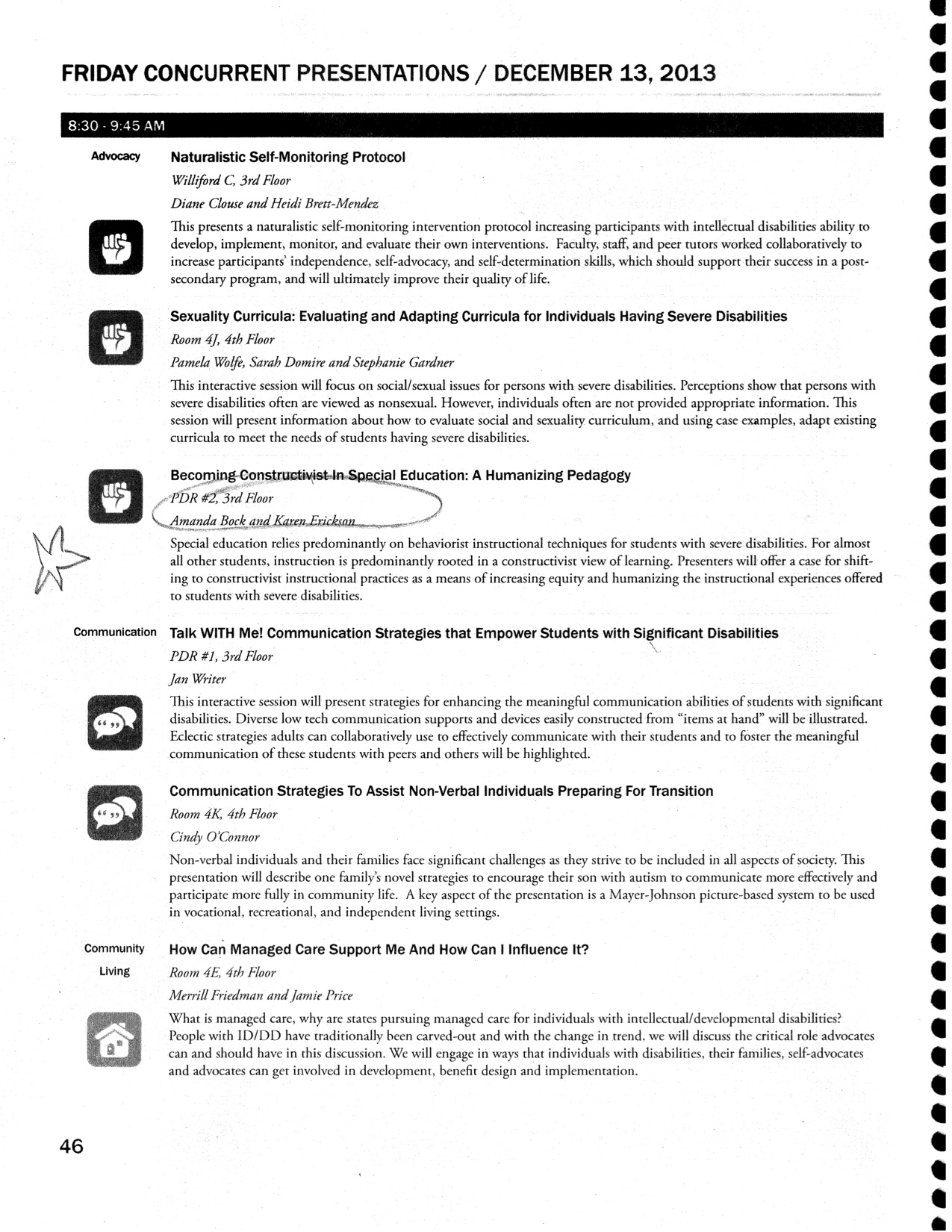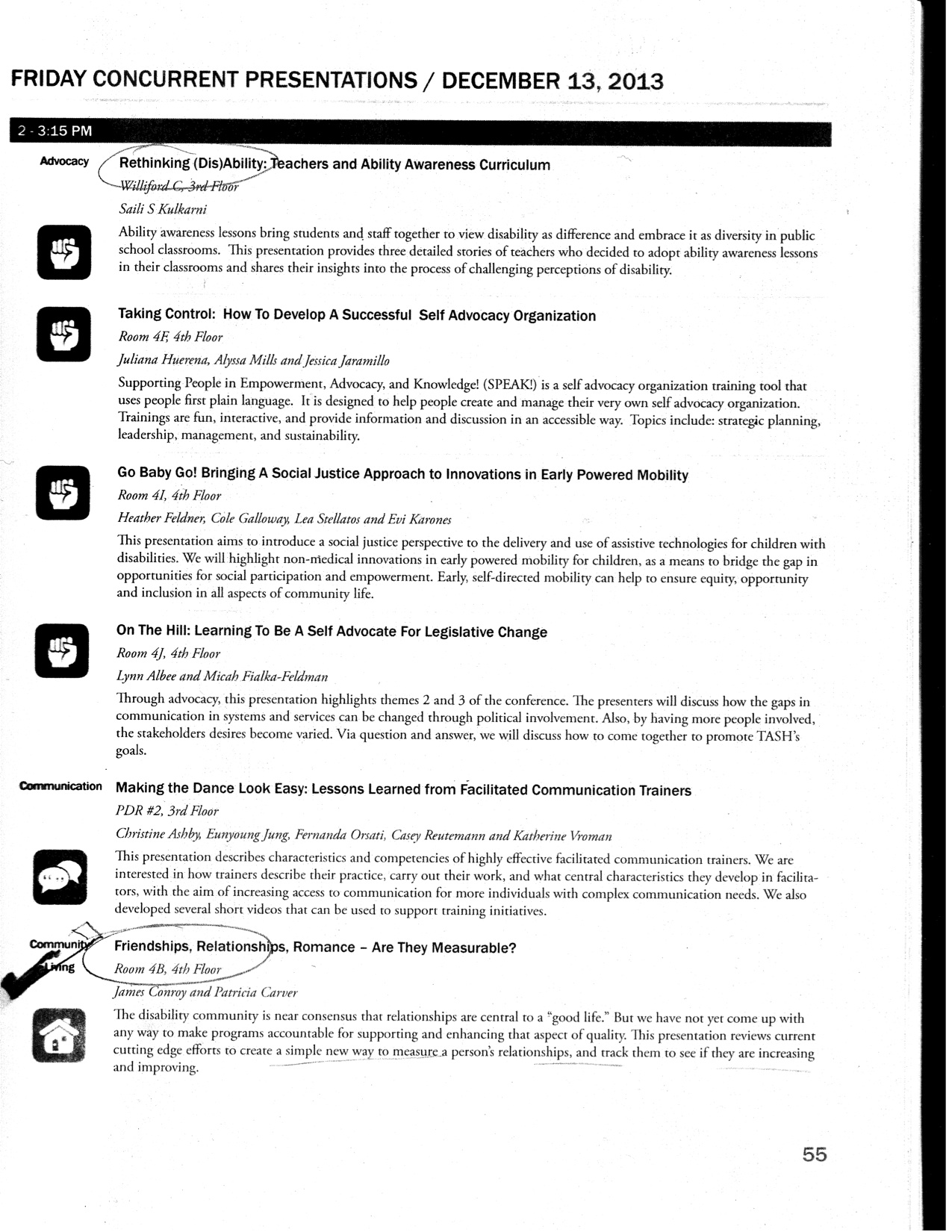The two sessions that I gained the most from at the TASH conference are shown in the conference program below. First, the session on constructivism provided a language for what I intuitively feel is an over-reliance on reductionist behavioral techniques in special education, especially with students with the most significant cognitive disabilities. The presenters shared their case study research design and highlighted findings where special educators in self contained settings edged away from merely prompting teacher-directed correct responses. They began to accept more errors and unsolicited communication attempts as students increased their active engagement.
The other session addressed the issue that programs for adults with significant disabilities measure program satisfaction when we know that having friends, family and relationships are what matter most to people. The speakers disagreed on whether these outcomes could be measured reliably, and in fact, whether they should be. One key point for me was when the speaker suggested we should measure the places where a person belongs and not the places a person goes. Currently, community integration is measured by how many places a person goes and how frequently. But, that isn’t necessarily a good measure of inclusive community. However, how would you measure the level of acceptance or how welcoming a place is or how content a person feels there? This was a fantastic thought-provoking session about what matters in the lives of people with significant support needs and how those of us interested in research and policy might create better measures.

